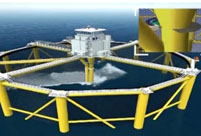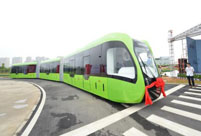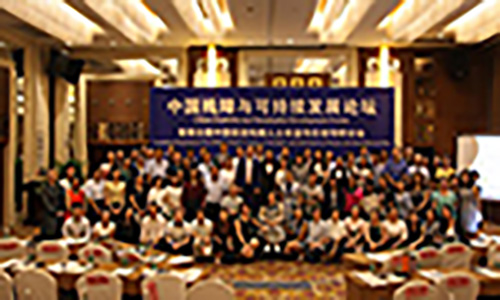

The 2017 G20 Summit started in Hamburg, Germany on July 7. The meeting comes as the world is trapped in an economic slowdown with sluggish trade and investment.
Negatively impacted by the refugee crisis, many European countries encountered political unrest as their elections went on. Anti-globalization and trade protectionism once again swept the world, and populism is also in a rise.
With a complicated prospect and emerging uncertainties, the world is embracing both challenges and opportunities.
Under such a background, G20, the primary platform for international economic cooperation, proposed to build an “innovative, invigorated, interconnected and inclusive world economy” at the Hangzhou Summit held last year, giving a Chinese remedy to the global economic problems.
After Germany took the baton as the rotating presidency of the G20 from China in December of the same year, the country set the theme of the summit as “Shaping an interconnected world”.
As an important period to promote the continuous changes of the world economic pattern and the transition of global growth momentum, the year of 2017 marks a crucial phase for the development of G20.
The G20 is required to contemplate on how its mechanism can further facilitate the sustainable development of the world.
G20 should make itself as a mechanism to prevent global risks. Given a new round of economic downturn, major economies have shifted focus on their own issues.
On the one hand, the differentiated monetary policies introduced by each central bank have brought uncertainties for the future development of the global monetary system, while on the other hand, the competition centered on tax policies between the U.S. and some European countries is becoming fierce.
Given the increasing risks confronted by international economy, G20 members should enhance cooperation and cope with global economic challenges in a more open way, so as to address the imbalanced development.
G20 should be an engine for global sustainable development. A sustainable, inclusive and interconnected development is required by the rebalance of global economic governance.
A global innovation system could be established under the G20 mechanism to realize world’s sustainable development and promote cooperation on multi-area economic governance.
The group should enhance interaction among the main aspects of innovation, driving force of innovation, market of innovation-oriented products and other different subjects, in a bid to inject new impetus to the growth of world economy.
G20 should play a coordinating role in the global governance system. Through top-level design, the organization should establish a regular coordination network and align more with multilateral mechanisms such as the BRICS, making the latter the co-undertaker of the G20 policies.
In addition, G20 can dovetail itself with the “Belt and Road” initiative by incorporating the latter into its mechanism, so that it could be endowed with broader views and energetic power and finally grow into a “hub” of global governance system.
(The author is the President of Renmin University of China)
 Magnificent view of Nansha Islands in South China Sea
Magnificent view of Nansha Islands in South China Sea Aerial view shows scenery in Hong Kong
Aerial view shows scenery in Hong Kong China builds world’s first offshore fish farm
China builds world’s first offshore fish farm A Foreigner's Chinese Dream and Love for China
A Foreigner's Chinese Dream and Love for China 5,000-year-old Chinese beer recipe goes down a storm in US
5,000-year-old Chinese beer recipe goes down a storm in US World's first driverless rail transit system unveiled in Hunan
World's first driverless rail transit system unveiled in Hunan World's largest cluster of Miao villages in Guizhou
World's largest cluster of Miao villages in Guizhou Daily life in Kashgar, China's Xinjiang
Daily life in Kashgar, China's Xinjiang Top 10 Chinese tech and engineering marvels
Top 10 Chinese tech and engineering marvels Top 10 most sustainable cities in China
Top 10 most sustainable cities in China Top 10 European patent applicants in 2016
Top 10 European patent applicants in 2016 The power of 'She' in China
The power of 'She' in China Seven most beautiful art museums in China
Seven most beautiful art museums in China China-NK Q1 trade data must be read fairly
China-NK Q1 trade data must be read fairly Children with disabilities still struggle to access mainstream schools: experts
Children with disabilities still struggle to access mainstream schools: experts Gay fiction bears brunt of new regulations that espouse socialist values
Gay fiction bears brunt of new regulations that espouse socialist values Mobile gaming industry booming
Mobile gaming industry boomingDay|Week